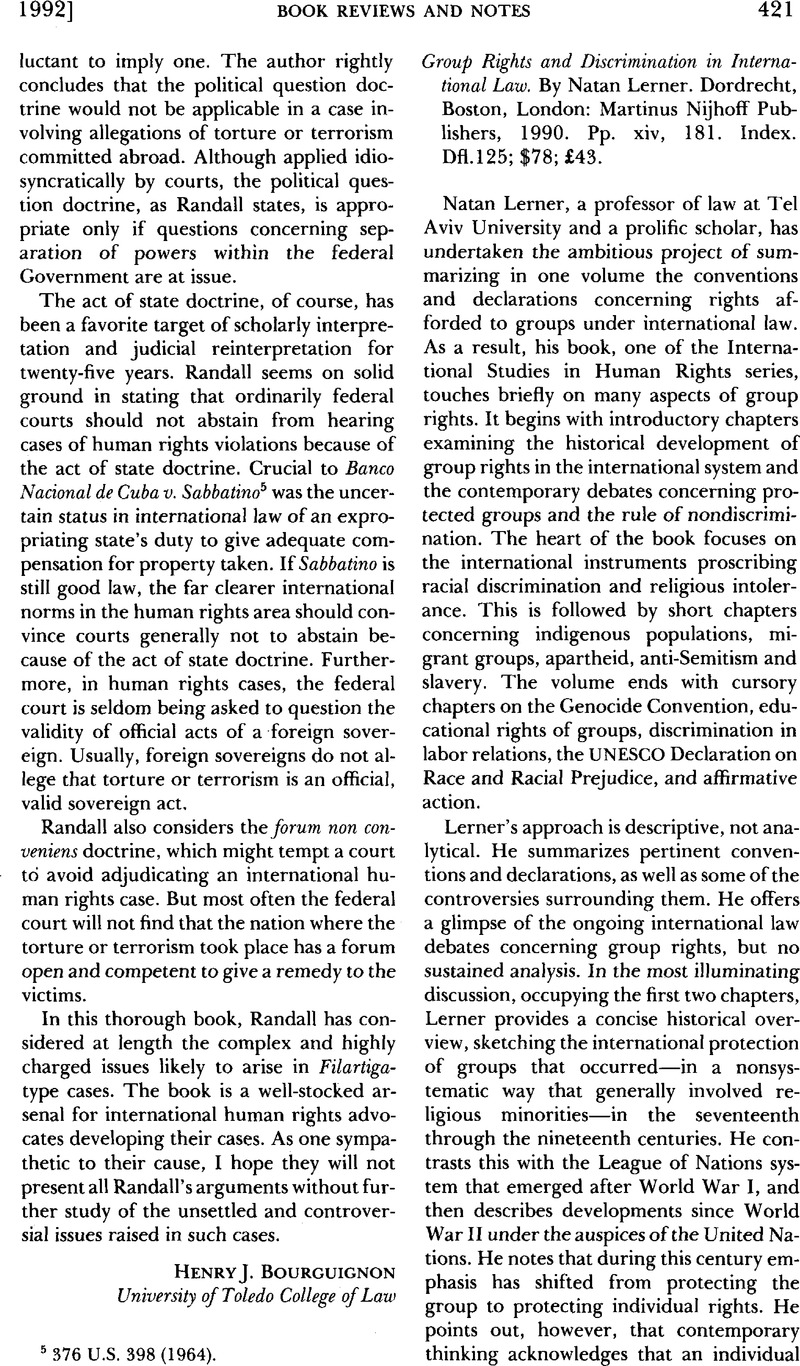No CrossRef data available.
Published online by Cambridge University Press: 27 February 2017

1 See, e.g., THE U.N. CONVENTION ON THE ELIMINATION OF ALL FORMS OF RACIAL DIS CRIMINATION(1980); Curbing Racial Discrimina tion—Fifteen Years CERD, 13 ISRAEL Y.B. HUM. RTS. 170 (1983); The Final Text of the U.N. Declara tion Against Intolerance and Discrimination Based on Religion or Belief, 12 id. 185 (1982); The Golan Heights Case and the United Nations Committee on Racial Discrimination, 3 id. 118 (1973).
2 Costa Rica, Denmark, Ecuador, France, Ice land, Italy, the Netherlands, Norway, Peru, Sen egal, Sweden and Uruguay have ratified Article 14. The first admissible complaint under Article 14 was filed against the Netherlands in 1984; the Committee on the Elimination of Racial Discrimi nation (CERD) concluded in 1988 that the Neth erlands had failed to protect a Turkish national's right to work under the Convention. 43 UN GAOR Supp. (No. 18), Ann. 4 at 59, UN Doc. A/43/18 (1988) (Communication No. 1/1984, Yilmaz-Dogan v. Netherlands). The second admissi ble complaint was filed against France in 1989; CERD has not yet issued an opinion (Communica tion No. 2/1989, D.T.D. v. France).
3 Syria's reports in 1971 and 1973 to CERD, as required by the Convention on the Elimination of all Forms of Racial Discrimination, stated that Israeli forces carried out racist policies against Syrian citizens in the occupied Golan Heights region. Many participants and commentators raised serious questions as to the competence of CERD to review this matter because it involved territory under a military occupation that had begun prior to Syria's accession to the Convention. Furthermore, many also viewed this report, which was supposed to be an evaluation of Syria's efforts to implement the Convention, as a disguised effort by Syria to file a complaint against Israel, not a party to the Convention. Moreover, others emphasized that if CERD decided that the Syrian report fell within its competence, it should at least allow Israel to submit its statement. CERD refused to accept the Israeli statement and voted to express the Committee's deep concern about the Israeli policies. See generally Lerner, The Golan Heights Case and the United Nations Committee on Racial Discrimination, supra note 1.